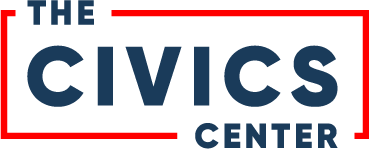Guest Blog: The Federal Civics Secures Democracy Act Represents a Generational Investment in K-12 Civic Education and the Future of Our Constitutional Democracy
Last month, a bipartisan group of U.S. Senators re-introduced the landmark Civics Secures Democracy (CSD) Act, which would authorize an historic investment to support K–12 civic education and American history. The reintroduction is the result of strong support by members of both parties over a months-long process to ensure that the bill affords the opportunity for each and every K–12 student in this country to have access to the kind of civic education needed to become informed stewards of U.S. constitutional democracy.
CSD is the first bipartisan initiative to support states and local school districts in offering the civic education needed to equip youth in the United States with the civic knowledge, skills, and dispositions to become informed and engaged members of society. This comprehensive piece of legislation responds to a crisis in civic education that has seen the subject neglected over the past 50 years. It would provide a $1 billion annual investment in civic education at the local level, specifically in students, teachers, schools, and districts, as well as an investment in research and data and diversifying the teacher pool.
The bill dramatically increases federal support for civics and American history and is an exercise in federalism in and of itself. With 85 percent of funds directed to states to in turn be passed down to districts, all curricular decisions under CSD would remain matters of state and local control. The updated bill clarifies and limits the role that the federal government would play in allocating funding and is deficit neutral.
Specifically, CSD provides for:
Grants to states ($585 million annually for five years) to support education in American civics and history. States receiving a grant must agree to participate in the NAEPs in civics and history and to the public release of disaggregated NAEP performance data. States that receive grants must use not less than 95% of the funds to make subgrants to school districts to assist local education agencies in carrying out programs to improve the achievement of elementary and secondary school students in the fields of American civics and history. Priority will be given to grant proposals focused on traditionally underserved populations.
Support for qualified nonprofit organizations ($200 million annually for five years), through competitive grants, to assist such organizations in developing or expanding access to civics curricula, instructional models, and other educational programs to enhance student knowledge and achievement in American civics and history in elementary schools and secondary schools. Priority will be given to grant proposals focused on traditionally underserved populations.
Resources for institutions of higher education ($150 million annually for five years), on a competitive basis, to assist such institutions in developing and implementing programs to train elementary and secondary school teachers in methods for instructing and engaging students in American civics and history. Priority shall be given to applications proposing to address the specific needs of teachers working with traditionally underserved students. Thirty-five percent of these funds are designated for Historically Black Colleges and Universities, Hispanic Serving Institutions, and Tribal Institutions of Higher Education.
The entirety of the ‘USA Civics Act’ was incorporated into CSD as Section 203. Specifically, Section 203 renames the existing HEA (Higher Education Act) civics grant program (The American History for Freedom Act) as the “American civics education program,” and recommends funding for the USA Civics Act and Section 105, ‘Grants to Institutions of Higher Education.’
Qualified researchers ($50 million annually for five years) may also receive competitive grants to research and evaluate (1) elementary and secondary school students’ knowledge of American civics and history; and (2) effective instructional practices and educator professional development in the fields of American civics and history.
Fellowships, establishing a new program to diversify the American history and civics teaching corps through the creation of the Prince Hall Fellowship ($15 million annually for five years) and providing additional assistance to ensure the ongoing effectiveness of the James Madison Memorial Fellowship (one-time appropriation of $20 million) and Harry S. Truman Scholarship (one-time appropriation of $300 million).
Finally, this bill directs the National Assessment Governing Board and the U.S. Department of Education to conduct the National Assessments of Educational Progress (NAEP) tests in U.S. History and Civics and Government, using a methodology sufficient to provide accurate, disaggregated, statistically significant state-level data on student proficiency for every state, on student academic achievement in public and private elementary schools and secondary schools at least once every two years, in grades 4, 8, and 12.
In order for CSD to pass in the current Congress, Representatives and Senators must hear from constituents about the importance of this generational investment in K-12 civic education. Supporters can use the advocacy tools of the CivXNow Coalition to send emails and make phone calls to your Representative and Senators. Better yet, individuals and groups can work with the CivXNow Policy Team to schedule a meeting with your members. Finally, CivXNow has created a Social Media Toolkit for supporters to help amplify support for CSD.
CivXNow is a coalition of partners from diverse viewpoints working to create a culture shift that elevates civic education and engagement as a national priority in order to protect and strengthen America’s constitutional democracy. This includes building a shared commitment to ensure that all young people are prepared to assume their rights and responsibilities to participate in civic life and address the issues facing students, their families, and communities in our increasingly dynamic, polarized, and digital society.
To achieve this goal, CivXNow advocates for bipartisan federal and state legislation that supports implementation of state and local policies that reimagine and deliver relevant, inclusive, and engaging K-12 civic learning, both in- and out-of-school. The Civics Center is a member of the CivXNow coalition.
Shawn P. Healy is the Senior Director of Policy and Advocacy at iCivics. Opinions expressed are those of our guest blogger.
